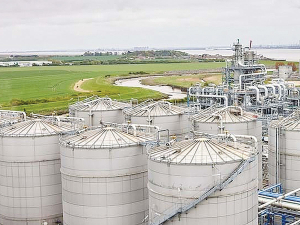While Donald Trump seems to deliver a new tariff every few days, there seems to be an endless stream of leaders heading to the White House to negotiate reciprocal deals.
In the UK, the Labour Government seems intent on destroying its agricultural industry, most recently with the planned removal of the exception of inheritance taxes for farmers and a punitive review of Benefit in Kind rules that will reclassify double cab utes as cars.
The latest announcemne is a deal negotiated by Prime Minister Keir Starmer that sees the previous 19% import tariffs on US ethanol entering the UK falling to zero, with a 1.4 billion litre quota ceiling, which currently represents the size of the UK's entire ethanol market.
Ethanol is produced from corn (maize) in the US, with government subsidies to farmers, that has resulted in an estimated 35% of total corn production destined for ethanol production, The total output is estimated at 15.6 million gallons, resulting in an economic boost of US$57 billion to rural communities and accounts for 28% of US farming's GDP. Its production is also said to create 420,000 jobs in 200 production plants in 23 states.
The tariff removal for UK-bound ethanol is likely to create damaging impacts for UK farmers, who collectively send around two million tonnes of lower-value feed wheats each year to two key production plants in the north-east of England.
If the Vivergo bioethanol plant in Hull and Ensus' site in Teeside were shut down, it would leave the UK dependent on overseas suppliers, with the former suggesting that 4000 jobs in the UK bioethanol industry could be affected.
Alongside the likelihood of increased ethanol prices, the key component of Green E-grade fuels, the loss of the manufacturing by-product from the process will result in higher feed prices following, Interestingly, other industries affected would include the likes of the National Health Service, who rely on regular supplies of carbon dioxide.
The agreement is seen as a big win for farmers in states such as Iowa and Nebraska, which are major producers of ethanol and were part of President Trump's support base in last year's election.
Vivergo, owned by AB Foods, has been lobbying the government for many months about bioethanol, particularly regarding cheaper US shipments coming into the UK. AB Foods said unless help was provided in the form of short-term funding of Vivergo's losses and a longer-term solution, the plant will stop manufacturing before 13 September.
The firm said in a statement: "In our interim results announcement on April 29 2025, we stated that the commercial viability of Vivergo, our bioethanol business, was being undermined by the way in which the UK Government was applying regulations to imported ethanol. Since then, the situation has been made significantly worse by the UK's trade deal with the US, which will allow tariff-free US ethanol into the UK. The removal of a 19% tariff on US ethanol imports, was the final blow, noting the recent deal has made it impossible to compete with heavily subsidised American products."



















